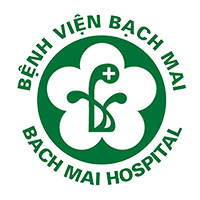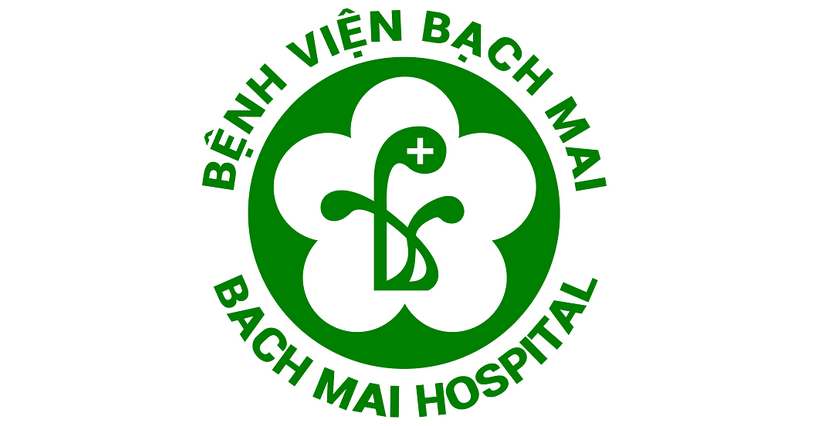Bệnh viện bạch mai * Bach Mai Hospital
Tạp chí Y học lâm sàng * Journal of Clinical Medicine
Website : www.jocm.vn Email : jocm@bachmai.edu.vn Phone : +84947040855
ĐÁNH GIÁ TÌNH TRẠNG SẢNG SAU PHẪU THUẬT TIM MỞ VỚI TUẦN HOÀN NGOÀI CƠ THỂ
- Mã bài báo : 125.10
- Ngày xuất bản : 31/12/2021
- Số trang : 75-83
- Tác giả : Tạ Đình Đô
- Lượt xem : ( 1773 )
http://doi.org/10.52322/jocmbmh.125.10
TÓM TẮT
Đặt vấn đề: Sảng (delirium) sau phẫu thuật là một biến chứng thường gặp. Sự xuất hiện của sảng ở bệnh nhân phẫu thuật tim làm ảnh hưởng đến khối lượng công việc điều dưỡng và tác động tiêu cực đến kết quả điều trị của bệnh nhân như kéo dài thời gian nằm viện, tăng tỷ lệ tử vong, suy giảm nhận thức kéo dài
Mục tiêu: Đánh giá chăm sóc điều dưỡng cho người bệnh sau mổ nội soi túi mật.
Đối tượng và phương pháp nghiên cứu: Nghiên cứu thuần tập trên những bệnh nhân phẫu thuật tim mở với tuần hoàn ngoài cơ thể ≥18 tuổi tại Đơn vị phẫu thuật tim mạch_Bệnh viện Bạch Mai, công cụ chẩn đoán sảng là CAM-ICU, đánh giá tình trạng sảng mỗi ngày 2 lần trong 4 ngày đầu sau phẫu thuật.
Kết quả: Trong 285 bệnh nhân được đưa vào nghiên cứu có 56 bệnh nhân được chẩn đoán sảng theo CAM-ICU, chiếm 19,6%; các yếu tố nguy cơ độc lập được xác định là tuổi cao, tiền sử tai biến mạch não, thời gian chạy tuần hoàn ngoài cơ thể kéo dài, rung nhĩ sau phẫu thuật, dùng opioid > 3 ngày.
Kết luận: Sảng là biến chứng thường gặp sau phẫu thuật tim mở với tuần hoàn ngoài cơ thể. Việc xác định các yếu tố nguy cơ của sảng sau phẫu thuật giúp cho các bác sỹ, điều dưỡng có thái độ tiếp cận và xử trí đúng đắn trong quá trình phẫu thuật, gây mê hồi sức cho bệnh nhân, qua đó ngăn được những hậu quả xấu của sảng sau phẫu thuật.
Từ khóa: Sảng, delirium, phẫu thuật tim, yếu tố nguy cơ
ABSTRACT
ASSESSMENT OF DELIRIUM AFTER OPEN HEART SURGERY WITH CARDIOPULMONARY BYPASS
Introduction: Postoperative delirium is a common complication. The appearance of delirium in heart surgery patients affects the volume of nursing work and negatively impacts the patient's treatment outcome such as prolonged hospital stays, increased mortality, prolonged cognitive decline.
Objective: Describe the characteristics and evaluate some riskfactors of delirium after open heart surgery with cardiopulmonary bypass.
Methods: Cohort studies on open heart surgery patients with cardiopulmonary bypass that ≥18 years old in Cardiovascular Surgery Unit_ BachMai Hospital, a diagnostic tool is CAM-ICU, assesses delirium twice a day for the first 4 days after surgery.
Results: Of the 285 patients included in the study, 56 were diagnosed with CAM-ICU, accounting for 19.6%; Independent risk factors identified as advanced age, history of cerebrovascular accident, prolonged cardiopulmonary bypass time, postoperative atrial fibrillation, opioid use > 3 days.
Conclusions: Delirium is a common complication after open heart surgery with cardiopulmonary bypass. The identification of risk factors of postoperative delirium helps doctors and nurses have the right attitude to approach and handle during surgery, anesthesia resuscitation for patients, thereby preventing the bad consequences of delirium after surgery.
Keywords: delirium, open heart surgery, risk factors
- DOI : http://doi.org/10.52322/jocmbmh.125.10
- Chủ đề : Tim mạch
- Loại bài báo : Nghiên cứu gốc
- Chuyên nghành : Chuyên nghành Y khoa
 Thông tin liên hệ : Tạ Đình Đô
Thông tin liên hệ : Tạ Đình Đô Email : tadinhdo106@gmail.com
Email : tadinhdo106@gmail.com  Địa chỉ : Viện Tim mạch, Bệnh viện Bạch Mai
Địa chỉ : Viện Tim mạch, Bệnh viện Bạch Mai
- Từ khóa :
- Sảng
- delirium
- phẫu thuật tim
- yếu tố nguy cơ
Bài báo liên quan
- ĐẶC ĐIỂM HÌNH THÁI MI TRÊN Ở NỮ NGƯỜI VIỆT TRƯỞNG THÀNH
- ĐỊNH DANH ĐẾN LOÀI MỘT SỐ CHỦNG MYCOBACTERIA BẰNG PHƯƠNG PHÁP GIẢI TRÌNH TỰ GEN
- ĐÁNH GIÁ TÌNH TRẠNG SẢNG SAU PHẪU THUẬT TIM MỞ VỚI TUẦN HOÀN NGOÀI CƠ THỂ
- ĐÁNH GIÁ QUÁ TRÌNH CHĂM SÓC ĐIỀU DƯỠNG CHO BỆNH NHÂN SAU PHẪU THUẬT NỘI SOI CẮT TÚI MẬT
- KẾT QUẢ SỐNG THÊM KHÔNG BỆNH VÀ MỘT SỐ YẾU TỐ LIÊN QUAN TRÊN BỆNH NHÂN UNG THƯ VÚ BỘ BA ÂM TÍNH ĐƯỢC HÓA TRỊ BỔ TRỢ TRƯỚC 4AC-4T LIỀU MAU TẠI BỆNH VIỆN K
- MỨC ĐỘ LO LẮNG VỀ BẠO HÀNH TẠI NƠI LÀM VIỆC CỦA HỌC VIÊN ĐIỀU DƯỠNG TRƯỜNG ĐẠI HỌC Y DƯỢC THÁI NGUYÊN VÀ MỘT SỐ YẾU TỐ LIÊN QUAN
- ĐẶC ĐIỂM DỊCH TỄ, LÂM SÀNG, CẬN LÂM SÀNG Ở BỆNH NHÂN NHIỄM ẤU TRÙNG GIUN ĐŨA CHÓ/MÈO (TOXOCARA) TẠI TRUNG TÂM BỆNH NHIỆT ĐỚI, BỆNH VIỆN BẠCH MAI
- XÁC ĐỊNH MỨC ĐỘ NHẠY CẢM VỚI THUỐC KHÁNG NẤM CỦA CHỦNG NẤM ASPEGILLUS PHÂN LẬP ĐƯỢC Ở BỆNH NHÂN NHIỄM NẤM PHỔI XÂM LẤN TẠI BỆNH VIỆN BẠCH MAI TỪ THÁNG 7/2020-6/2021
- TÌNH TRẠNG DINH DƯỠNG VÀ CHĂM SÓC ĐIỀU DƯỠNG BỆNH NHÂN XƠ GAN VÀ CÁC YẾU TỐ LIÊN QUAN TẠI TRUNG TÂM TIÊU HÓA- GAN MẬT, BỆNH VIỆN BẠCH MAI
- ĐẶC ĐIỂM LÂM SÀNG VÀ NHU CẦU CHĂM SÓC ĐIỀU DƯỠNG Ở NGÀY THỨ 7 CỦA NGƯỜI BỆNH CÓ HỘI CHỨNG CAI RƯỢU
- KẾT QUẢ PHẪU THUẬT NỘI SOI ĐIỀU TRỊ INSULINOMA KHÔNG SỬ DỤNG SIÊU ÂM NỘI SOI TRONG MỔ TẠI KHOA PHẪU THUẬT TIÊU HÓA GAN MẬT TỤY, BỆNH VIỆN BẠCH MAI
- TỔNG QUAN VỀ CHỈ ĐỊNH GHÉP GAN ĐIỀU TRỊ UNG THƯ BIỂU MÔ TẾ BÀO GAN
Bài viết mới nhất
- Tạp chí YHLS BVBM được phê duyệt mức điểm 0,75 trong Danh mục tạp chí khoa học được tính điểm năm 2024 của HĐGSNN
- Thư mời gửi bản thảo cho số tiếng Anh năm 2023 của Tạp chí Y học lâm sàng
- Chúc mừng Ngày Báo chí Cách mạng Việt Nam 21/06
- Giải thưởng Đặng Văn Chung: Tôn vinh giá trị sáng tạo và Nghiên cứu khoa học
- Quy định về định dạng bài báo theo định dạng chuẩn quốc tế

 File toàn văn
File toàn văn



